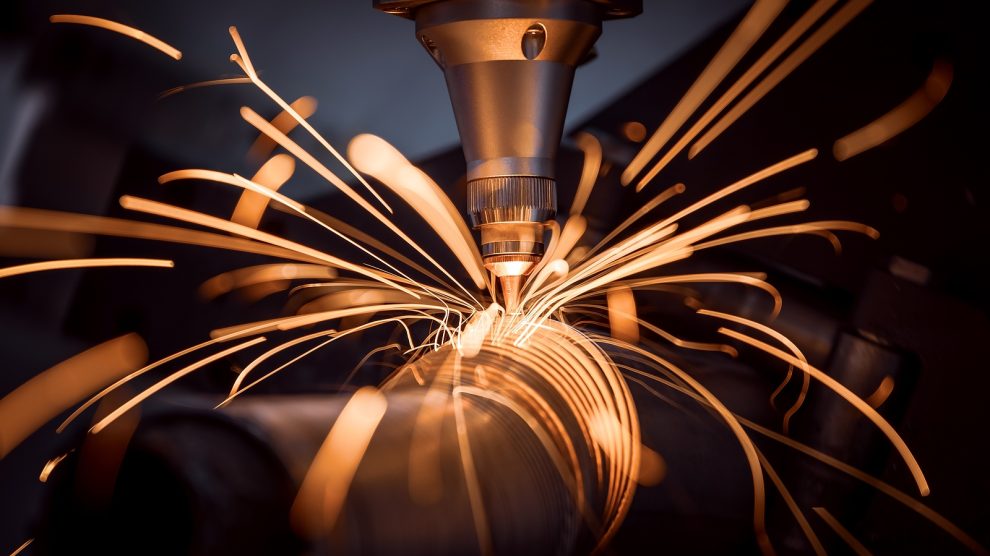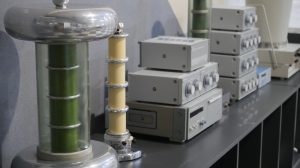Lithuanian laser companies are impacting several key industry sectors across the globe.
Lithuania’s photonics sector has grown at a rate of 16.2 per cent over the past decade, outpacing the European average ten times.
Some 95 of the world’s top 100 universities employ Lithuania’s laser technologies, a rate of success that can be attributed to a unique blend of historical factors and a strategic approach.
“We fired our first laser in 1966, just six years after the world’s first. Despite our small size, our scientific community has always thrived on making something out of nothing, as there was a lack of resources in Soviet times,” says Antanas Laurutis, CEO of Altechna, an international laser optics provider based in Lithuania.
- Despite headwinds, Lithuania’s fintech sector remains resilient
- In the Baltics, defence tech is coming of age
- From Lithuania, battlefield-tested advanced swarm technology
Now, in its 35th year as an independent country, Lithuania produces a wide range of internationally recognised laser technologies.
“Lithuania’s laser industry hub, which developed from humble beginnings, now boasts a complete value chain, from optics manufacturing to systems integration, strategically positioning the country in the global market. This comprehensive chain rivals the world’s largest laser hubs, making Lithuania an attractive destination for foreign investment and further industry consolidation,” continues Laurutis.
Global impact
Lithuania’s laser industry currently features diverse solutions such as material growth and preparation, precise optical, mechanical, and electronic components, subassembly contract manufacturing, a wide variety of optical devices and cutting-edge lasers, integration services, systems manufacturing, and even final products made by laser systems.
As a result, Lithuanian laser companies are also impacting several key sectors globally.
The semiconductor industry, projected to reach a value of one trillion US dollars by 2030, is one of them. Lithuanian lasers are essential in global semiconductor manufacturing, enabling precise processes and contributing to the global consumer electronics market growth, valued at 773.4 billion US dollars in 2023.
Another sector is the augmented reality (AR) market, which is expected to skyrocket from 93.67 billion US dollars in 2024 to 1.86 trillion US dollars by 2032. The instrumentation market, enabled by compound semiconductors, is projected to grow from 18.46 billion US dollars in 2024 to 21.76 billion US dollars by 2029.
“The markets we operate in are predicted to have at least a seven per cent CAGR [compound annual growth rate] through 2030,” adds Laurutis.
“While some sectors like display and semiconductor are currently in a downturn, growth is expected to resume by 2025. Defence and space markets, driven by geopolitical factors, will offer reliable growth opportunities. We’re also seeing new localisation trends, which will open new doors as old ones close.”
Adapting focus
As Lithuania’s laser market players navigate these changes, adapting focus to rapidly growing sectors will be crucial for continued growth.
“Altechna is focusing on booming sectors such as semiconductor manufacturing, space, and automotive. Providing optics and complex subassemblies for such industries will require us to change our course and prepare for the expected growth,” concludes Laurutis.
The global laser market stood at 17.82 billion US dollars in 2022. It is expected to expand at a CAGR of 7.8 per cent from 2023 to 2030, and Lithuania is significantly contributing to this growth.
The country is already a major player in scientific and industrial laser technologies, exporting laser solutions to over 80 countries and collaborating with organisations including NASA and CERN.
Unlike many news and information platforms, Emerging Europe is free to read, and always will be. There is no paywall here. We are independent, not affiliated with nor representing any political party or business organisation. We want the very best for emerging Europe, nothing more, nothing less. Your support will help us continue to spread the word about this amazing region.
You can contribute here. Thank you.







Add Comment